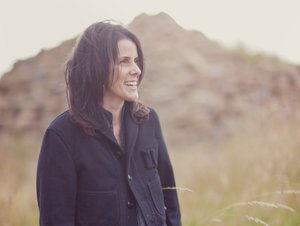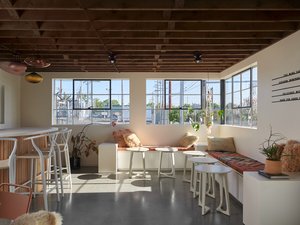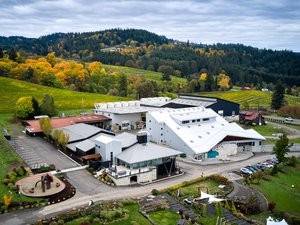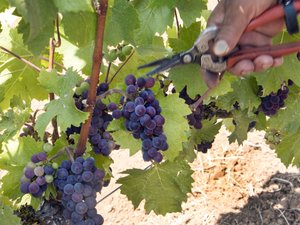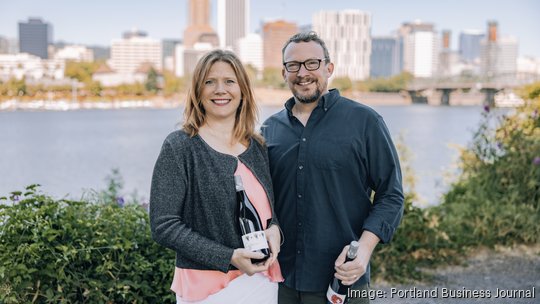
Wine isn't produced everywhere, but it's made — and more than that, is a cultural touchstone — in far more places than the casual consumer scanning supermarket shelves might imagine.
Surfacing a less recognized wine region is the mission of Erin Graham and Aric Wood with their new import and direct-to-consumer business called Archetyp. It's a side gig for the Portland couple, whose day jobs have brought them to the pages of the Business Journal before — she as president and CEO of OMSI, he as CEO of Xplane, a management and design consulting firm.
But while Archetyp might occupy a niche in their lives, and the wine world, it's not without ambition.
"Our vision," Wood said, "is to become the cellar door for Alpine wine in America."
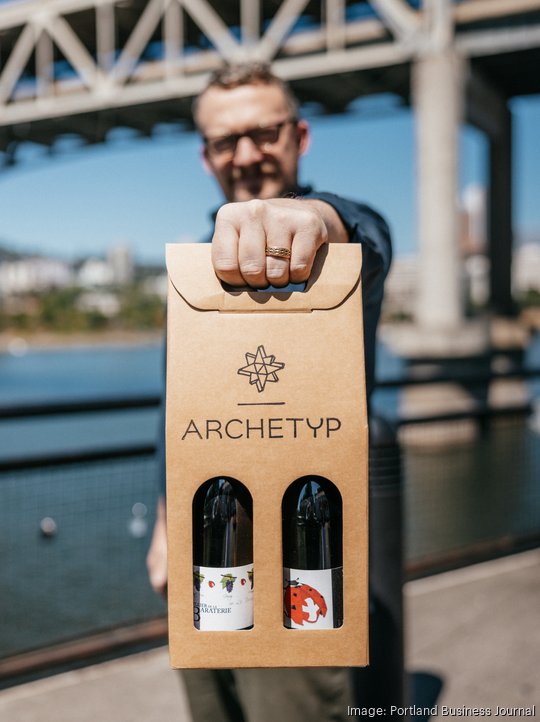
They traffic in wines from some of the hundreds of valleys that dot an "Alpine arch," as Wood termed it, from Nice, France, in the southwest to Vienna in the northeast. It touches seven countries: France, Italy, Switzerland, Liechtenstein, Germany, Austria and Slovenia.
The couple's attachment to the region has several threads. Wood has been a wine collector since his 20s, and a self-described student of Central Europe. But both are wine nuts, their affection extending to volunteering for crush at wineries in Oregon. It was on a visit to Bolzano in Sudtirol, a region of northern Italy also known as South Tyrol, that Archetyp began to emerge.
"We were there drinking this amazing wine after hiking in the Dolomites and looking out on the mountains and thinking, 'We can't have this experience at home,' and it really is about the experience," Graham said. "And the wine is so crisp and fresh and acidic and low alcohol, and feels very much of the terroir of that region. That started the wheels turning."
While Archetyp leverages the couple's attachment to the region and their business experience, it also takes advantage of a Supreme Court decision in 2005 that cracked open new possibilities in direct-to-consumer wine sales.
Archetyp's regulatory boxes to check began with an import and distribution license from the federal Alcohol and Tobacco Tax and Trade Bureau. The business also needed winery and wholesaler licenses from the state of Oregon. With these credentials, Archetyp now has direct access to consumers in about a dozen and a half states and the District of Columbia (which, Wood noted, leads the U.S. in per-capita wine consumption).
Club-based business model
Three clubs form the foundation of the business: the Haus Wine Club that delivers a shipment of six Archetyp-produced wines for around $90 quarterly; the Keller Club, with three identical cellar-worthy wines at about $120 quarterly; and the monthly Terroir Club, with two wines of the same varietal from different terroir at $40-$50 per shipment.
In the specialty wine world, these are accessible prices. That reflects cutting out a layer or two in a traditional three-tier system of producer, wholesaler and retailer that sometimes comes with even more stops, each one adding margin before the wine gets to the consumer.
Sourcing directly brings obvious benefits to consumers and helps Archetyp achieve its goal of turning people on to something fresh and new in wine — and not trophy wines.
"They're meant to be shared with friends around a table," Wood said. "They're not meant to be sold off in an estate sale or saved for 20 years. They're meant to be consumed."
The model also accomplishes another Archetyp goal: To help small producers, who are poorly served by a conventional wine trade that generally wants large volumes, grow their reach.
"Part of what we're trying to do in this producer-centric model is say, 'We want you as the winemaker to retain as much of the margin as you can,' because we want to encourage these small growers to be successful," Wood said.
Insta and word of mouth
Archetyp aims for inclusion in its sourcing, and more than 40% of the wineries it represents have women winemakers. It also works with small-scale producers of other products, such as Alpine cheese, to boost their reach. The Haus wines were developed not only to bring unassuming, archetypal "daily drinkers" to consumers, but to support viticulture schools in the region where they are made.
Archetyp sells to non-club members through its website, and recently brought in a shipment to expand its offerings. It will soon begin offering the wines to restaurants and specialty retailers as well.
An Instagram feed and word of mouth have gotten Archetyp to about half its club membership goal. It expects to reach the goal this year.
"It's already happening where the people who have signed up and who have received the first shipment are so enthusiastic that they're telling their friends," Graham said. To which Wood added: "The great news is that quality sells itself, once again."
